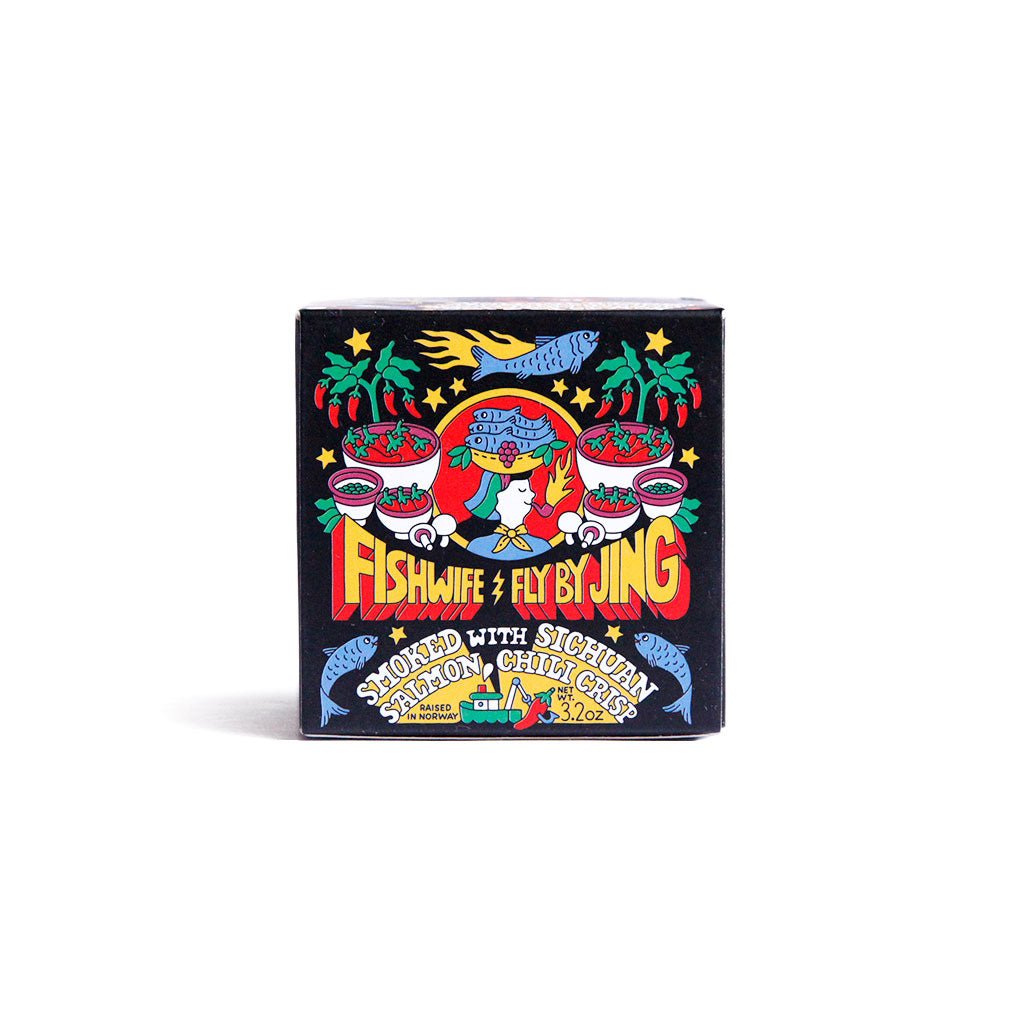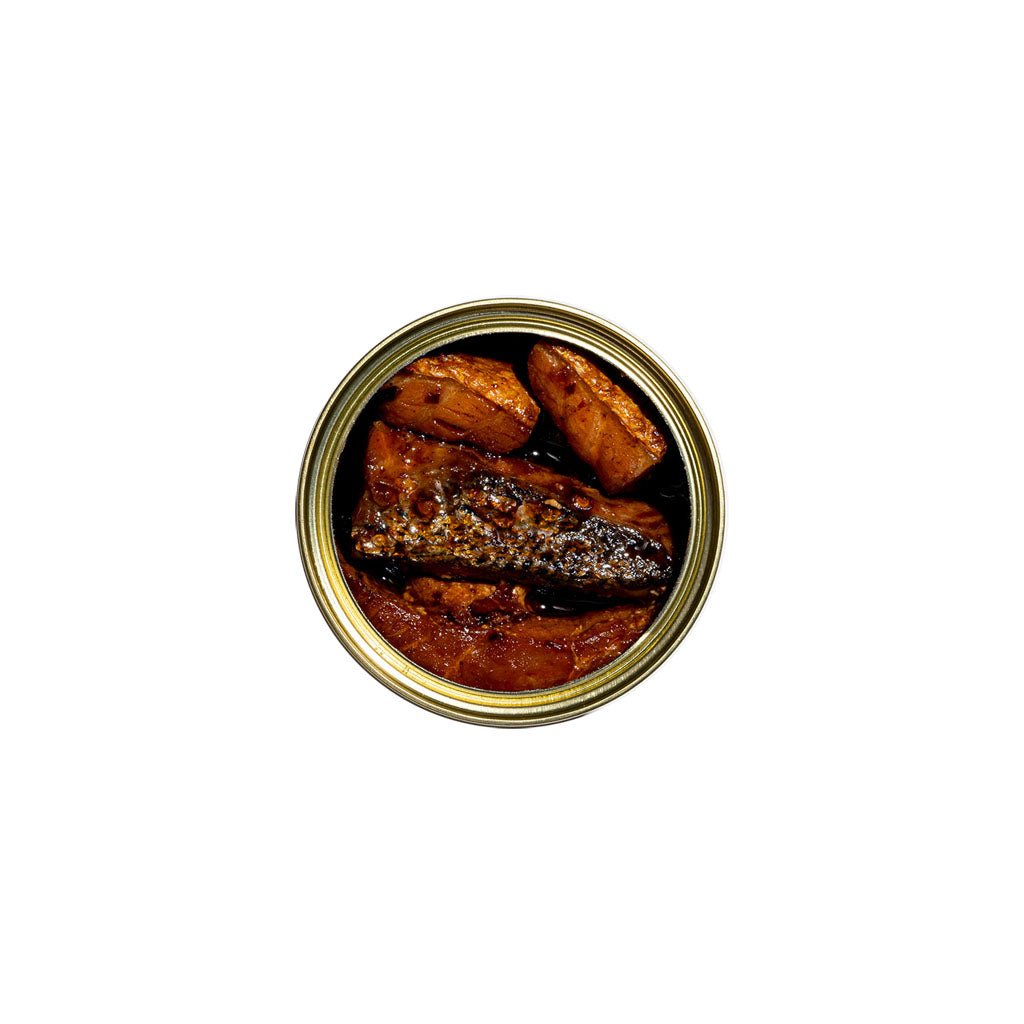Smoked Salmon with Fly By Jing Sichuan Chili Crisp
Fishwife's Smoked Salmon with Fly By Jing Sichuan is a popular go-to lunch around our offices, where folks are known to enjoy it for lunch with a side of rice or a some fresh greens. The just-right heat of Fly By Jing's Sichuan sauce complements the smoky salmon with flavors of chili pepper, black bean, and garlic.
Enjoy it knowing that it is:
- hand packed at a family-owned cannery on the coast of Washington State
- brined in salt, garlic salt, and brown sugar then hand packed into cans with Fly By Jing’s Sichuan Chili Crisp, the first & only 100% all-natural Sichuan chili sauce, proudly crafted in Chengdu
- sourced directly from Kvarøy Arctic, the first finfish farm to carry the Fair Trade USA seal, and BAP, ASC and Global G.A.P. certification
- raised by third-generation family farmers in the icy Arctic circle with deep ocean currents that keep the water fresh
- fed a zero-waste, nutrient-rich diet
- raised without antibiotics or chemicals
Materials: atlantic salmon, Fly By Jing Chili Crisp (non-gmo sichuan rapeseed oil, non-gmo soybean oil, dried chili pepper, preserved black bean, garlic, sesame oil, salt, shallots, ginger, mushroom powder, sichuan pepper, seaweed powder, spices), dark brown sugar, salt, garlic salt (sea salt, garlic, salt, modified corn starch, sugar, parsley, natural flavor and extractives of carrot (for color))
Made by: Fishwife
Made in: raised in Norway, smoked and packed in USA
Fly By Jing Chili Crisp is small-batch crafted in Chengdu, Sichuan.
Specifications: 3.2 oz; packed in BPA-free cans
Further Reading: Fishwife is a Los Angeles-based, women-owned food company that works with responsibly managed fisheries and farms in an effort to make premium, ethically sourced tinned seafood.
What is a fishwife? The term "fishwife" dates back to the 16th century, when it was used to describe the wives of fishermen who sold their fishy wares at the market. It later evolved into an insult for loud, foul-mouthed women.





